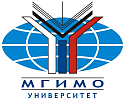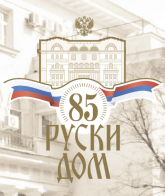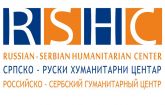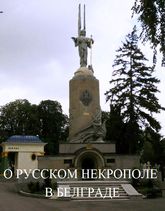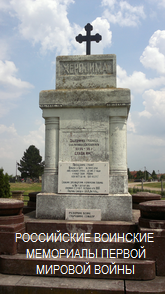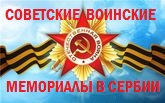Интервью Посла А.В.Чепурина журналу "CorD"
Published in CorD December 2018 issue, no. 170
H.E. Alexander Chepurin, Ambassador of the Russian Federation to Serbia
SOLUTION FOR KOSOVO AND RESOLUTION 1244 INSEPARABLE
Russia will support the decision that Serbia considers acceptable for itself. If Belgrade is satisfied with the delineation with Kosovo’s Albanians, I see no reason for objections from Moscow. The decision should be taken without blackmailing Belgrade, on the basis of and with respect for Resolution 1244, which fixes the territorial allegiance of Kosovo to Serbia – Alexander Chepurin
Preparing for the visit of Russian President Vladimir Putin to Serbia, Ambassador Alexander Chepurin says that this will be the third meeting between the two countries' leaders during a ten-month period, which – as he explains – confirms that they have plenty to discuss, but also testifies to the level of trust that exists between President Putin and Serbian President Aleksandar Vučić. The meeting between the leaders will include the signing of a large number of bilateral agreements, some of which could provide the basis for the launch of cooperation in the field of atomic energy.
In this exclusive interview for CorD Magazine, Ambassador Chepurin adds that the issue of Kosovo will be an unavoidable topic of the discussions, noting that Russia's position on this issue remains unchanged and insists that – any agreement on future relations should be based on UN Security Council Resolution 1244.
Your Excellency, you recently announced the upcoming visit of Russian President Vladimir Putin to Serbia. How are preparations for his arrival in January progressing?
Both Russia and Serbia attach great importance to the upcoming visit of Russian President Vladimir Putin to Belgrade. It's no secret that this event is being prepared very thoroughly. First of all, work is being done on its content. A number of agreements are being prepared for signing. Deputy Director General of the State Corporation Rosatom, N.N. Spassky, recently visited Belgrade and discussed with President Vučić a promising area of cooperation – the use of atomic energy for peaceful purposes, primarily in the field of medicine.
During a recent visit to Belgrade of Deputy Prime Minister Yuri Borisov it was agreed that there would be vigorous promotion of bilateral economic cooperation to ensure a more complete utilisation of existing possibilities.
Good prospects are emerging in advanced technologies (with giants such as Rostec, Rosatom, Roscosmos, Yandex, Kaspersky, Mail.ru etc.), the energy sector (Gazpromneft and Power Machines), the gas sector (Gazprom), agriculture, transport infrastructure (Russian Railways) and other areas. We need to explore new frontiers.
President Vučić was President Putin's guest in Moscow as recently as October. How do you explain such frequent meetings at the highest level?
The intensity of contacts at the highest level of Russia and Serbia testifies to the relations of trust between its leaders, this is the first point. Secondly, it means that they have something to discuss. Russia and Serbia are firmly committed to the development of bilateral relations that satisfy the interests of our countries and peoples. This will be the third meeting of our leaders over the past 10 months, with them having met in Moscow on 9th May and 2nd October this year.
Are the topics of the January 2019 talks in Belgrade already known?
It is not difficult to guess that the range of issues will be very broad. First of all, this is a bilateral theme: political, economic and cultural. The exchange of views on the situation in the Balkans is also important. An obligatory subject is, of course, the settlement of the Kosovo issue, where our approaches are very close. It is important to rely on international law. The solution to the problem is possible on the basis of UN Security Council Resolution 1244. Russia is in favour of both dialogue and agreements.
Following a recent meeting between President Putin and President Vučić, the Russian “Kommersant” announced that the idea of the Serbian President to demarcate the Serbs and Albanians in Kosovo was rejected in Moscow. You have repeatedly said that a treaty is acceptable to Russia if it is acceptable to Serbia, does this include division?
Russia will support the decision that Serbia considers acceptable for itself. If Belgrade is satisfied with delineation with Kosovo’s Albanians, I see no reason for objections from Moscow.
Two things are important here. The decision should be taken without blackmailing Belgrade, on the basis of and with respect for UN Security Council Resolution 1244, which fixes the territorial allegiance of Kosovo to Serbia. Secondly, such a decision, if reached, should be fixed by the adopting of a new UNSC resolution.
It should be also implemented. We can see that European Union efforts failed, because Pristina completely ignores interim agreements reached within the framework of the Brussels process, including the establishment of the Community of Serb Municipalities. Now Priština raises the question of the armed forces, tariffs.
There is no visible progress on the return of Serb refugees. The Serbian Orthodox Church is exposed to new attacks. The special court never started its work in Kosovo. And what about the investigation into the murder of Oliver Ivanović, which is being led by the Kosovars?
All of this does not add optimism.
Nevertheless, you stated recently that “Kosovo should return to the legal and state field of Serbia in accordance with international law”. How realistic is such an option, considering that Kosovo's independence also has the support of part of the international community, including the United States and 23 EU members?
The recognition of Kosovo's “sovereignty” by individual countries does not change the international legal status of the province. It is necessary to seek a solution within a legal framework. And that framework is Resolution 1244.
Russia and Serbia are celebrating 180 years of diplomatic relations. You have been personally involved in this cooperation for the last six years, as ambassador to Serbia. Are there any challenges in what is commonly referred to as the best possible cooperation between the two countries?
You know, I am used to hearing the opinion, even very often, that Russian-Serbian cooperation has reached a qualitatively new level, which is true. It is characterised by durability and respect for mutual and individual interests. I consider it positive that within the framework of the partnership between Russia and Serbia there is room for development, especially in the economic sphere, which should become a priority task during the years ahead. Moreover, such opportunities have expanded significantly and it's now time to further expand this potential.
The analyses of experts increasingly refer to Serbia as a country where Russia and the West demonstrate their power on the international scene. What is Russia's interest in Serbia?
You know, analysts say the same about many other countries, based on the logic of confrontation. But the world today consists not only of the West and Russia. The world today is experiencing dangerous tensions. It would be nice for everyone to look to the example of relations between Russia and Serbia, which have an extremely positive, mutually beneficial direction.
Speaking about your service in Belgrade, in an interview for the Moscow Institute of International Relations of the Russian Ministry of Foreign Affairs you said that “the Serbs are the main fans” of Russia and that Serbia is the only European country that has not introduced sanctions against Russia. How are you looking at Serbia's strategic approach to EU membership and enhancing cooperation with NATO within the Partnership for Peace programme?
You will not find a single official statement in which Moscow opposes the European integration of Serbia or is against European integration as such. At the same time, and it is important, Belgrade should not be imposed to ultimatums and asked to break its partnership with Russia. When it comes to the example of EU countries themselves, one can see the negative consequences of such inconsiderate and counterproductive steps.
As for NATO, we have long warned about the negative consequences of the bloc’s eastward expansion. However, the Serbian authorities clearly adhere to the principle of military neutrality. Belgrade does not want to join NATO, nor to join anti-Russian sanctions, and the Western countries should respect this position. Furthermore, Serbia is familiar with NATO’s activities not via its pretty pictures, but via its bloody bombardments and inhuman and coward military actions launched against the civilians of Yugoslavia.
Serbia, as a sovereign state, cooperates with both the Collective Security Treaty Organisation (CSTO) and North Atlantic treaty Organisation (NATO)– and this should not raise any questions. Russia itself joined the Partnership for Peace programme back in 1994.
At the same time, as you know, we were totally against all actions of force unauthorised by UN Security Council that were undertaken by the Alliance, including the bombing of Yugoslavia. However, back then NATO and the United States felt like the Masters of the World and were itching for blood.
Why would the Serbs want to join NATO after all this? Serbs are a proud people with a strong character; this is what they always were and remain so today.
From your perspective as a career diplomat, how would you assess current relations between Russia and the United States, which we are discussing in light of the U.S. President's latest announcement on withdrawal from the so-called “nuclear agreement”?
Unfortunately, many foreign policy steps of the current American administration are due to the internal political war in America. Thus, the White House announced its intention to quit the Intermediate-Range Nuclear Forces Treaty on the eve of the midterm congressional elections of 6th November, in the hope that this would reinforce the position of the Republican Party before the vote. We believe that the dismantling of the INF Treaty is fraught with negative consequences for strategic stability and runs the risk of drawing regions into a new arms race. The world will become even more dangerous.
What use is that to Russia? Russia, as well as Serbia, has gigantic creative tasks ahead.
In spite of good political relations and a free trade agreement, it can often be heard that trade exchange between Russia and Serbia is much lower than with the EU, for example, and that Serbia's exports to some countries of the former Yugoslavia are higher than exports to Russia. Do you see a way to increase this cooperation?
I will note that it is incorrect to compare Russia and an integrated association consisting of 28 countries.
In terms of the total turnover, Russia is consistently (together with Germany and Italy) among the top three key partners of Serbia, with a share of about 7%. At the same time, our trade turnover is quite diversified. The share of non-energy exports from Russia is increasing, and the share of industrial goods and high value-added products in exports from Serbia increasing, too
In the period from January to September this year, the turnover increased by 20.5% compared to the same period in 2017, reaching a total of $2.3 billion. We can expect to exceed the $3 billion mark by the end of this year.
Of course, the development potential of Russian-Serbian business ties is far from being exhausted. We are set to increase the volume and quality of our economic partnership. It’s quite realistic to increase trade volumes to an indicative $5 billion in the next three-four years. I am convinced that this fully meets the interests of Russia and Serbia, contributing to the improvement of the well-being of our peoples and the competitiveness of our economies.
Moreover, trade and economic relations between Russia and Serbia are today becoming innovative. Promising initiatives are being discussed in the fields of atomic energy and space technologies, IT, digital technology and medicine. Interaction is intensifying between Russian technology giants “Skolkovo” and “Innopolis” and Serbian IT companies.
A meeting of the Intergovernmental Committee on Trade, Economic and Scientific Cooperation was held in November. What are the current effects of the work of this body and what are the key messages of the session in Belgrade?
The Intergovernmental Committee (IGC) is the central platform for Russian-Serbian economic cooperation. Specifically, it is there that the strategic plans of the parties are coordinated, ideas and proposals are expressed and joint projects are substantively discussed. Meetings of the IGC co-chairs, and meetings of relevant working groups of the IGC on cooperation in the field of energy, agriculture, transport and tourism are held regularly. Following the meeting of the IGC in Sochi in February this year, a new cooperation working group was formed in the field of innovation, technological development, science and the digital economy.
During the last meeting of the IGC co-chairs – Russian Deputy Prime Minister Yury Borisov and Serbian First Deputy Prime Minister and Foreign Minister Ivica Dačić – held on 9th November this year in Belgrade, the emphasis was placed on high-tech cooperation. SC “ROSATOM” has very serious plans that include the construction of a multifunctional Nuclear Science and Technology Centre (NSTC) in Serbia, on the basis of which scientific research will be conducted, radio-pharmaceutical products will be created, and high-tech processing of agricultural products will be carried out. The agenda also includes the development of industrial cooperation and the localisation of production, primarily in the automotive and civil aviation sectors. I talked about this in detail at the beginning of our conversation.
You recently noted that the possibility of exporting Kragujevac-produced Fiat 500L cars to Russia is still being discussed at the state level. How realistic is it to expect such an agreement to be forthcoming?
Let me clarify a few points. The Russian-Serbian free trade agreement of the year 2000 does not prohibit the export of any goods. As part of this document, Russia and Serbia jointly agreed on a list of exemptions from the free trade regime in the interests of protecting their most sensitive markets.
Russia today has a production capacity of 3.5 to 4 million cars of virtually all of the world's leading vehicle manufacturers. And it produces almost two times less due to the limitations of the domestic market. The competition is very high. A large enterprise for the production of Mercedes vehicles will open near Moscow in the next two months.
Russia could export cars to Serbia and import Serbian products. The export of cars from Russia increases from year to year. When creating a preferential mode, the possibilities of exporting Russian cars to Serbia and Serbian cars to Russia are increasing, but that will be done in a competitive environment.
Currently, the technical negotiations are continuing between Serbia and the EEU, which includes Russia, Belarus, Armenia, Kazakhstan and Kyrgyzstan, on the conclusion of a free trade agreement. The second round of talks took place from 3rd to 5th October this year in Moscow. The third round will be held at the beginning of 2019 in Belgrade.
The most important task is to clarify the modalities of the free trade regime, including lists of exemptions. We expect the parties to be able to promptly sign the document. Let's see what its final parameters will be. Russia is ready to find mutually acceptable solutions.
 Српски
Српски 









